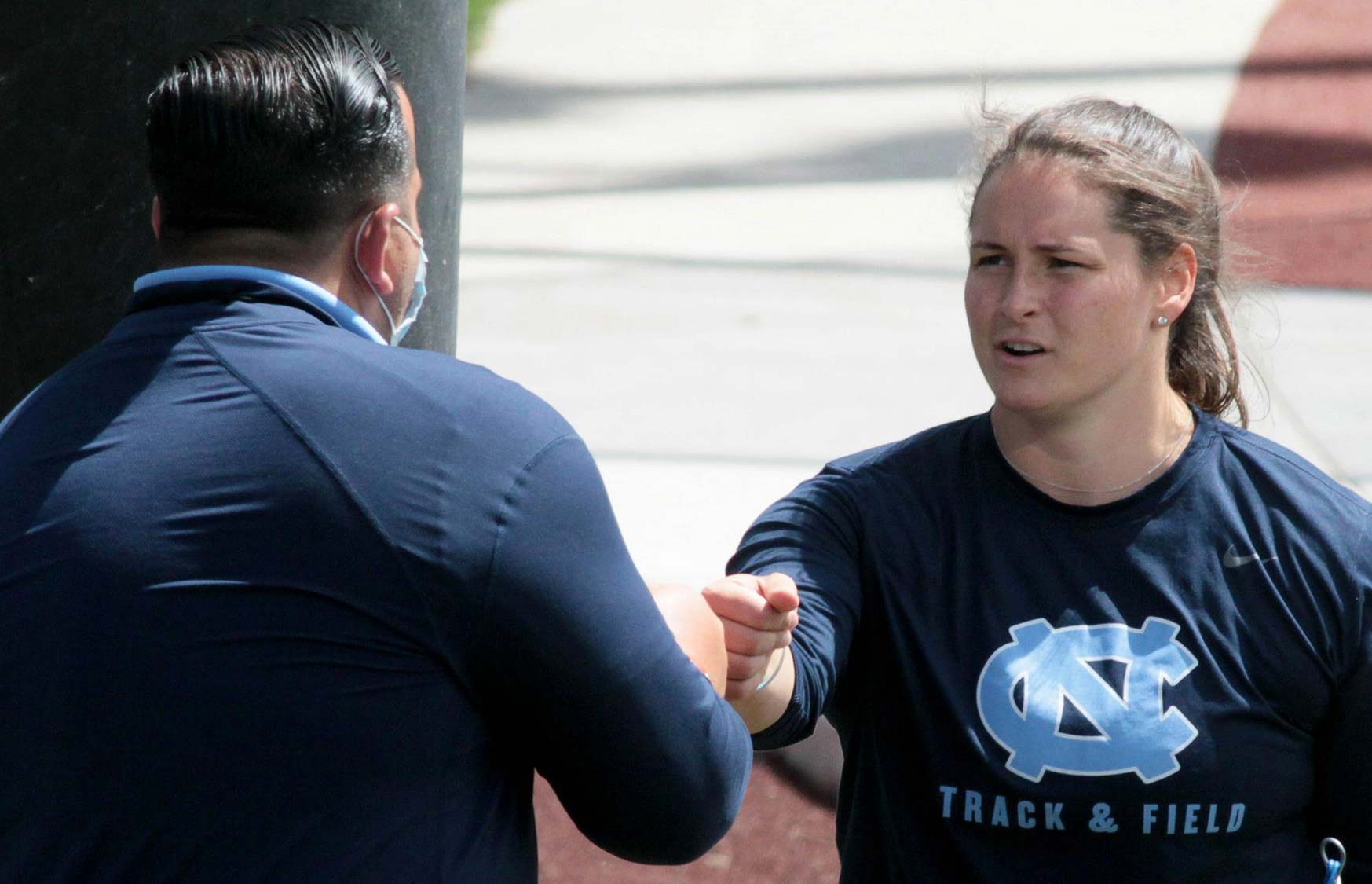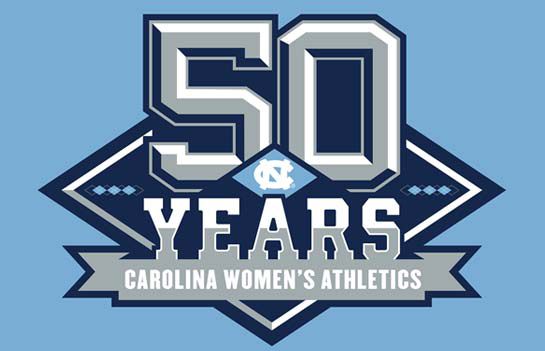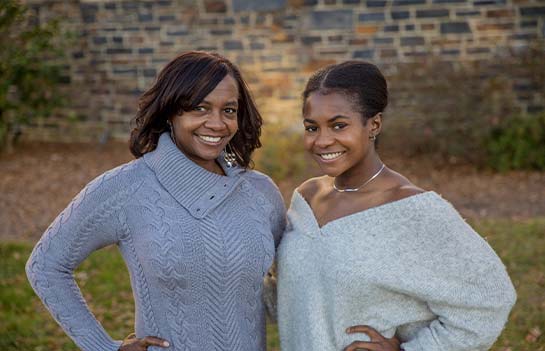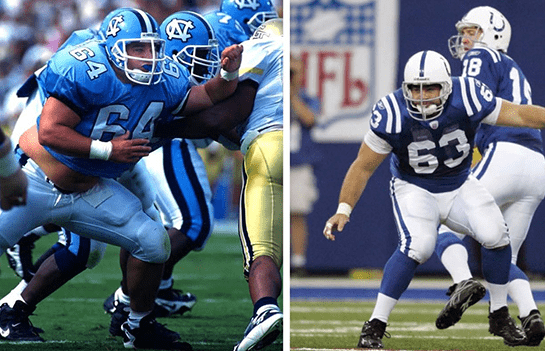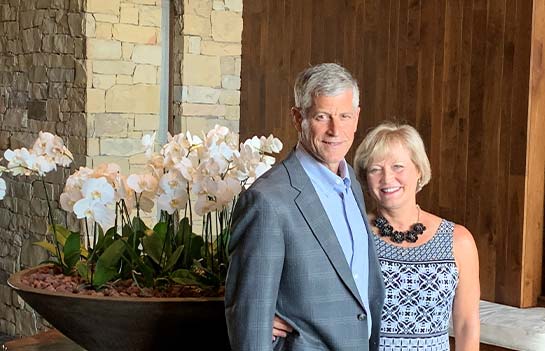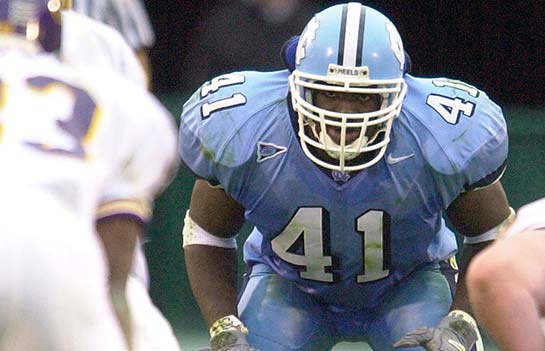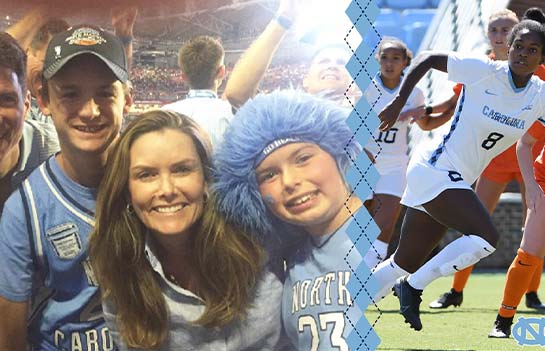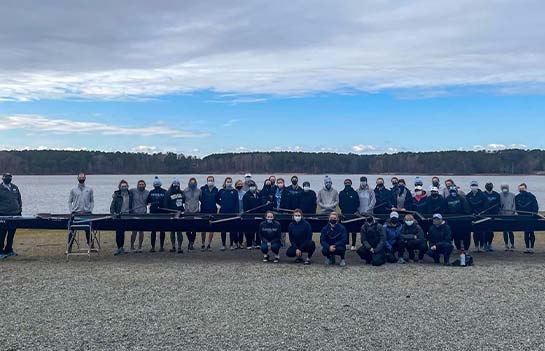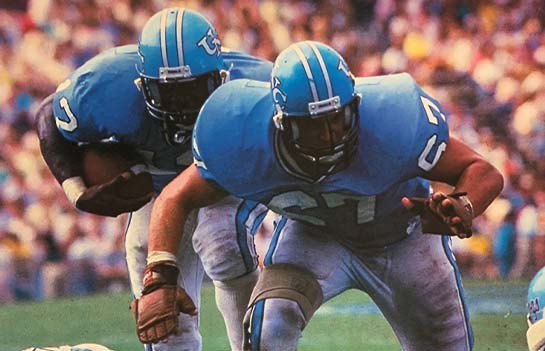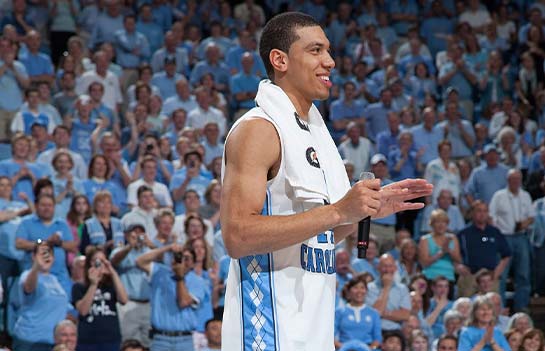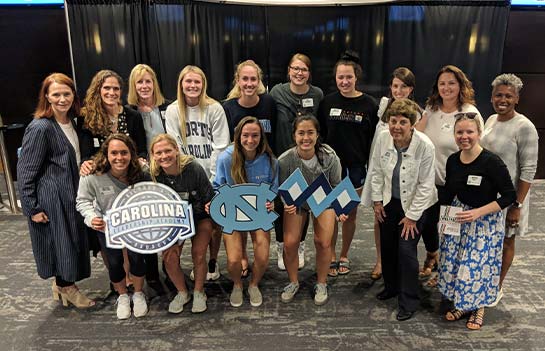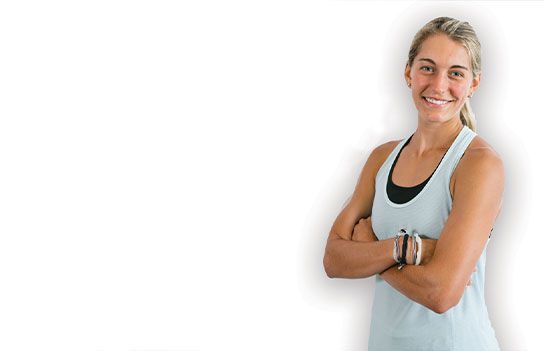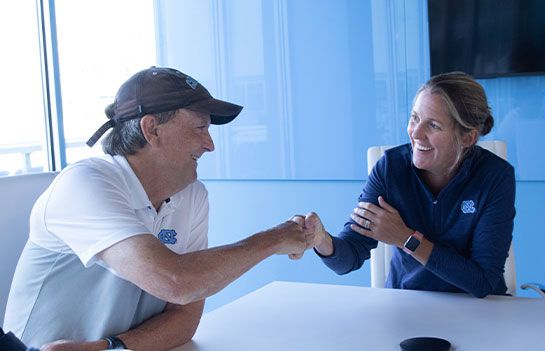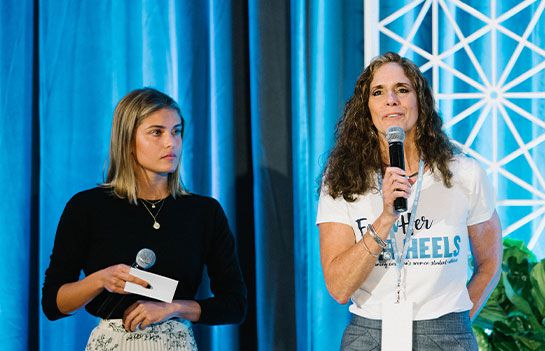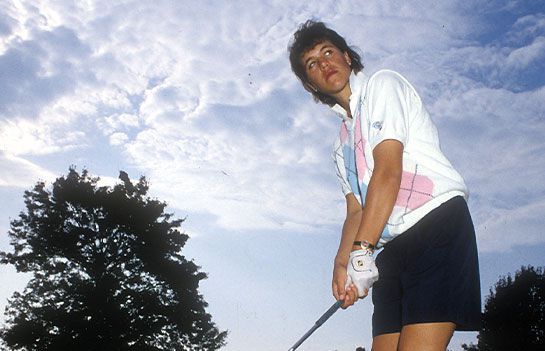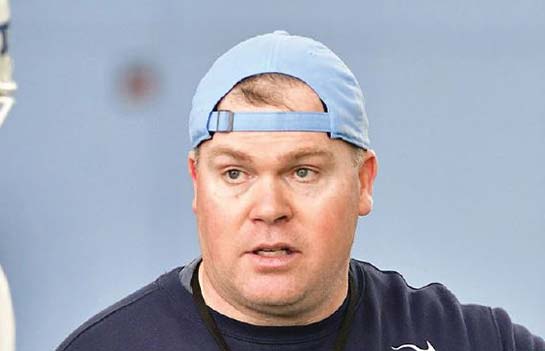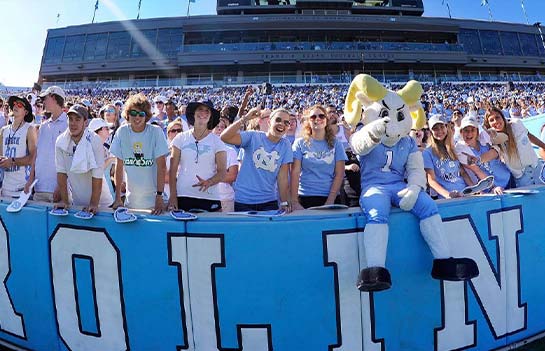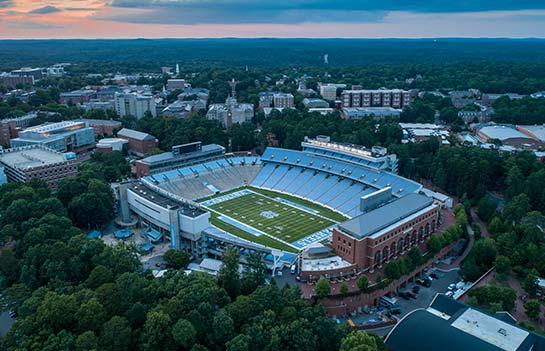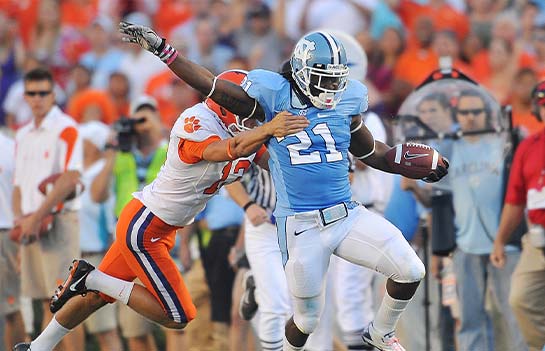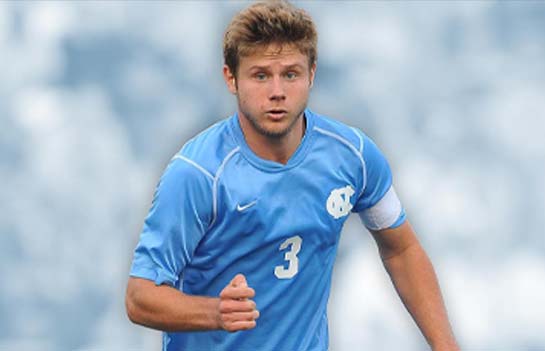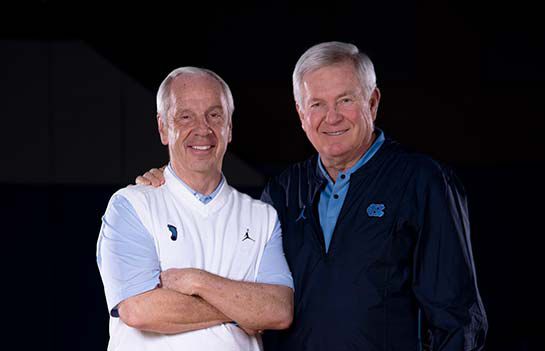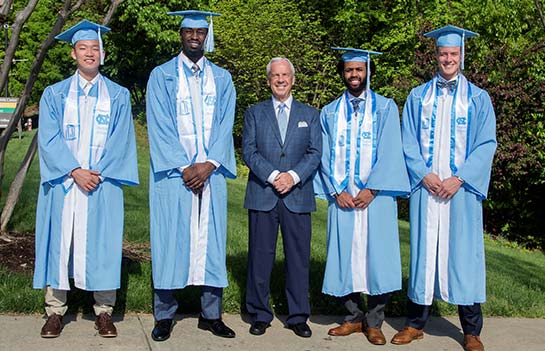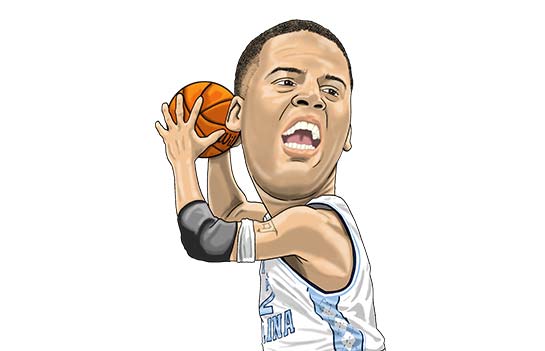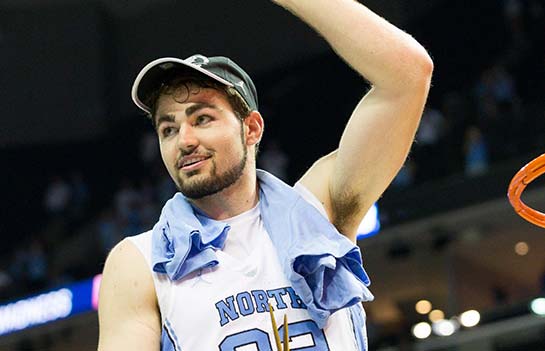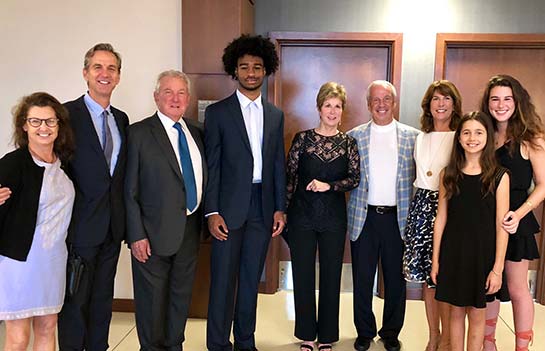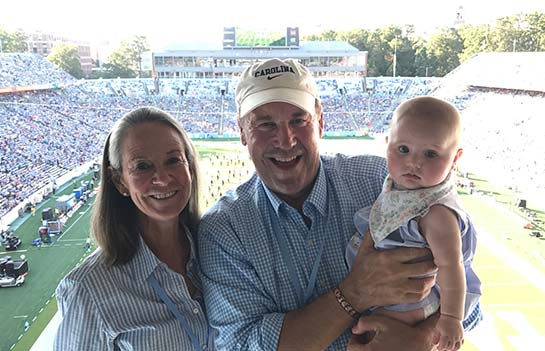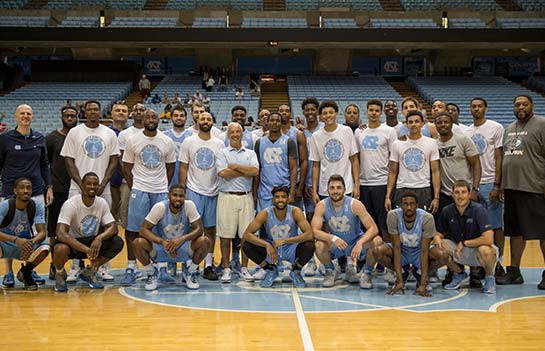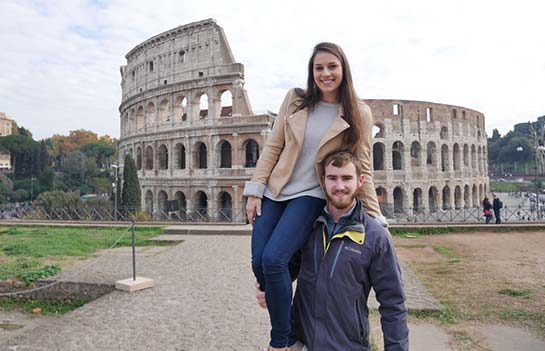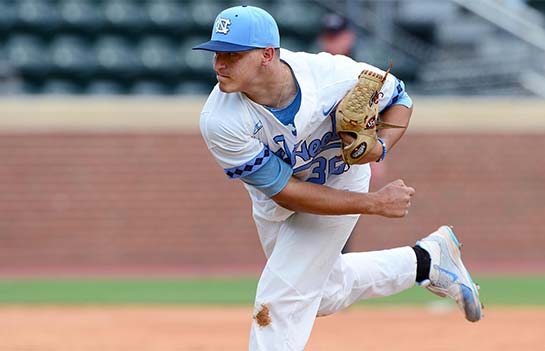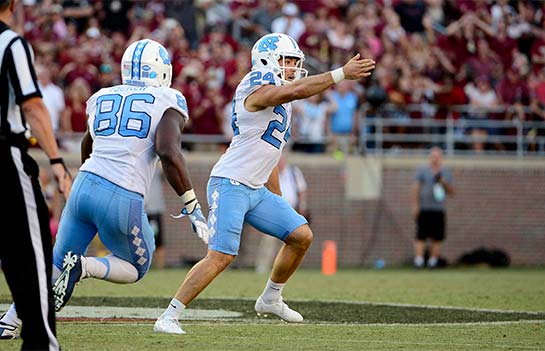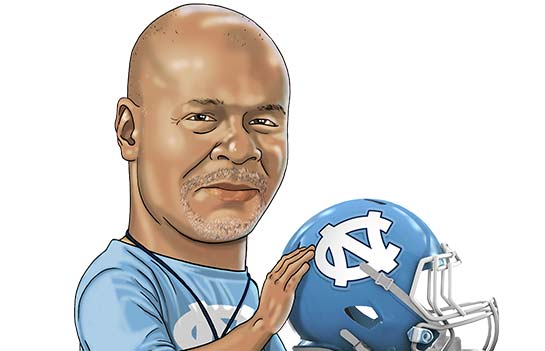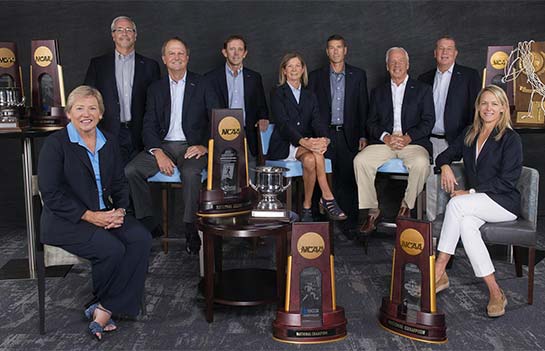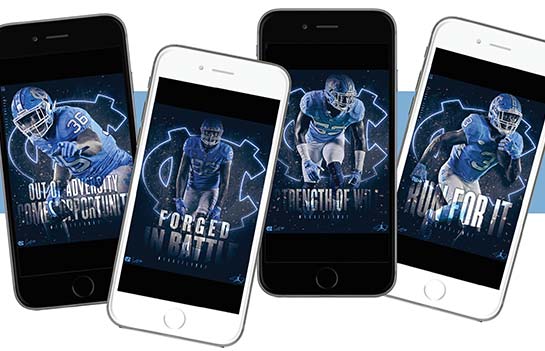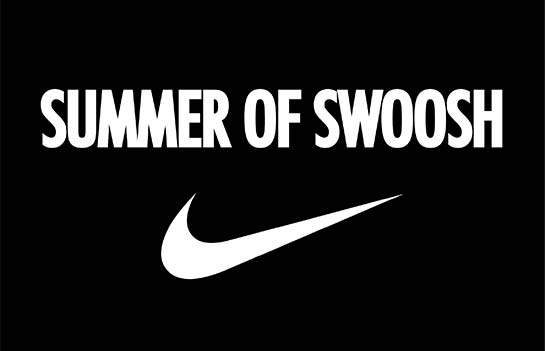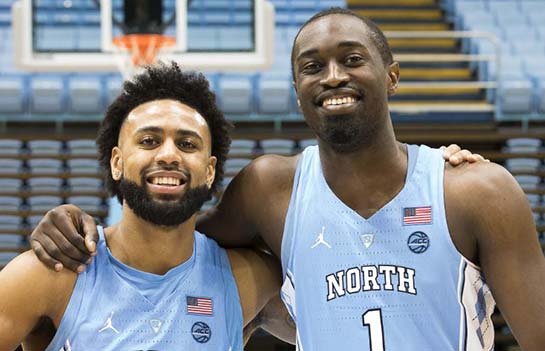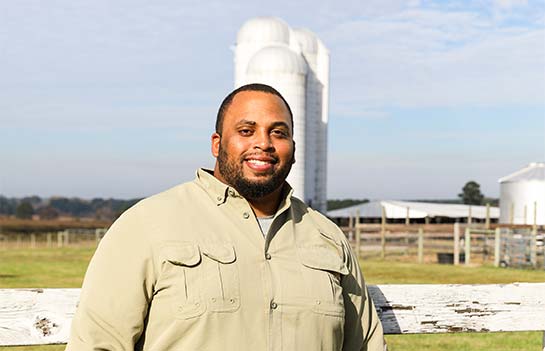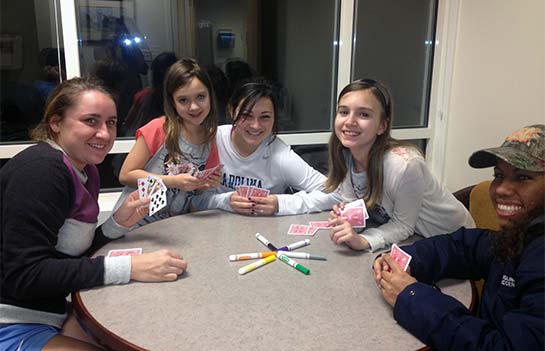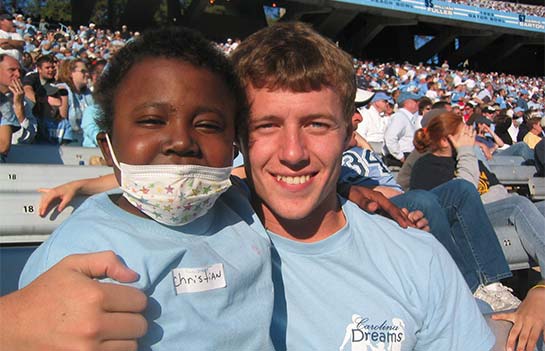BACK TO SCHOOL
TAR HEEL STUDENT-ATHLETES HAVE FOUND THE SKILLS THEY LEARNED AS AN ATHLETE TRANSLATE SEAMLESSLY TO
By: LEE PACE / Photos by: UNC ATHLETIC COMMUNICATIONS
As undergrads and student-athletes at the University of North Carolina, their alarm clocks went off at 5 a.m. for off-season conditioning work. As graduate-school students, they’re up early to catch up on reading or class assignments.
“I was up at 4:30 every morning in high school and 6 a.m. in college,” says Emma Nunn, a Tar Heel swimmer from 2012-16 now in law school at Carolina. “I personally like to get to school early and knock out a couple of hours early before class. It boggles my mind that people sleep through an 8:45 class.”
As undergrads, they knew the sting of losing a tennis match or a baseball game. As grad students pursuing degrees in medicine, law or business, they’re accustomed to bouncing back from a bad day and getting back on track.
“As athletes, we all experience failure of one form or another,” says Malia Cali, a distance runner from 2010-14 now just graduating from med school at LSU. “So you learn to deal with it. Okay, I lost my game. I lost my heat. You learn to formulate a plan and fix what went wrong.”
And as Tar Heels on the fields and courts, they perfected their athletic technique – be it a serve in volleyball or pass protection in football. That process works in a graduate field like dentistry, where students have to learn to prep crowns and fabricate dentures.
“The mindset of an athlete translates very well to dentistry,” says Kaitlyn Spencer, a volleyball player from 2010-14 and a recent ECU dental school graduate. “I have used the same competitive mindset that fueled my drive to get better in volleyball to becoming a better clinician in dental school. We’re used to challenges.”
Each spring hundreds of Tar Heel student-athletes take the next step – a few to professional sports, most to the working world and others to grad school. Some find their way back to grad school several years after dipping their toe into the business and professional world.
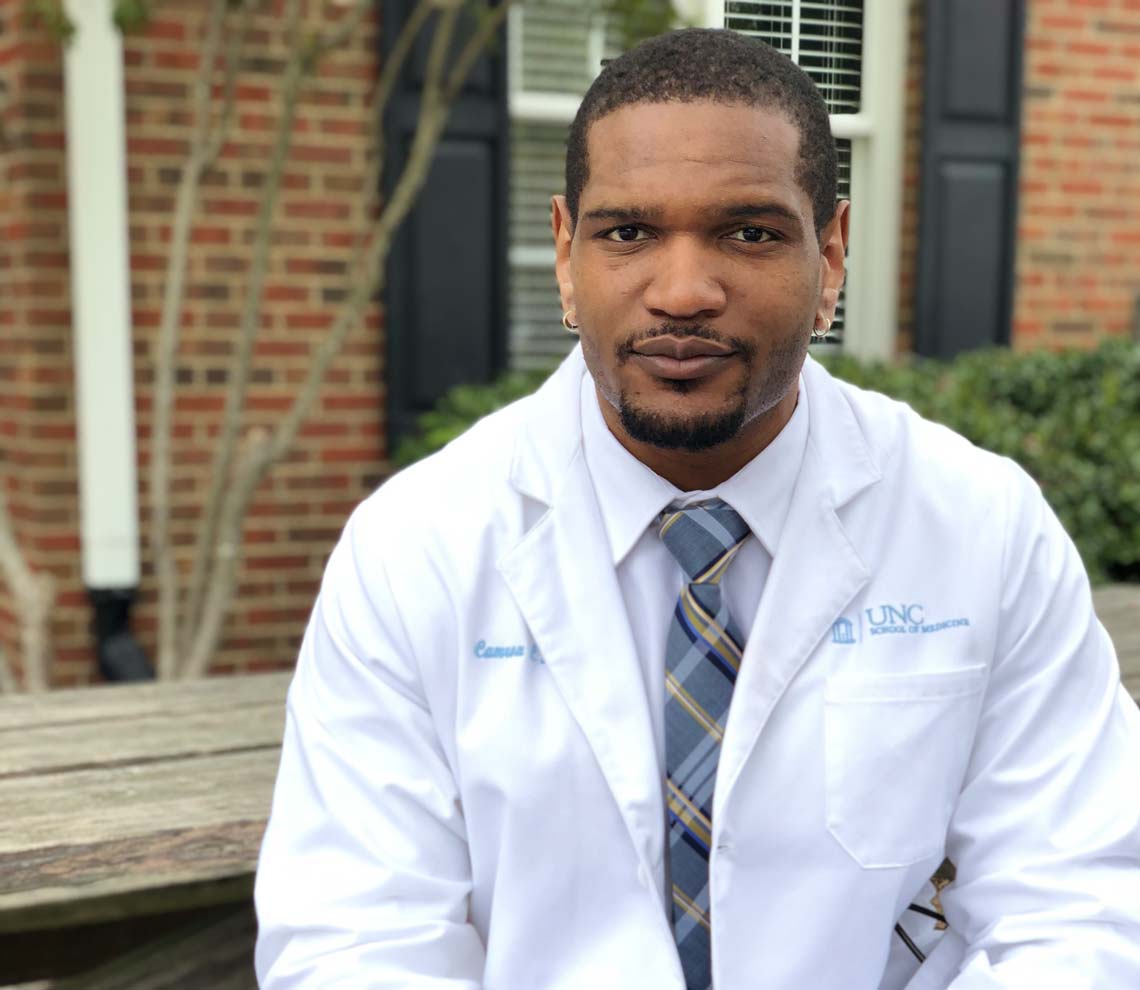
They unanimously find that the structure, discipline, resilience and drive that served them well in athletics are integral pieces to the toolbox of survival and ultimate success in working toward master and doctoral degrees.
“Sport itself is temporary,” says Cam Holland, the Tar Heels’ starting center in football from 2009-11 who’s just completed year two in the UNC School of Medicine. “At some point in time, your career is going to end. But the things that you learn while taking that journey – that’s for the rest of your life. All the bumps in the road – I wouldn’t trade them for anything. Maybe I’m not the biggest, strongest, fastest, smartest. But you won’t outwork me.
“It was one of the hardest things that I’ve ever had to do – finding the sheer discipline that you have to have to juggle the athletic part and the academic part. Having learned that, I don’t think there’s anything that I can’t do now.”
Holland is part of a distinguished group of offensive linemen on the 2008 roster, with four players eventually going to grad school: Morgan Randall, med school at the University of Kentucky (2015); Lowell Dyer, law school at Tulane (2014); Mike Ingersoll, law school at UNC (2017); and Holland.
That hardly jibes with the news feed that emanated for several years of academic scandal around the football team of that era.
“It’s very sad because there are a lot of very talented, very good guys, very intelligent people who I shared a locker room, shared the field with,” Holland says. “And nobody hears these stories. No one hears just what these players are about or what they accomplish or what they have to do. People kind of know of the other things that happened during that time.”
Ingersoll came to Chapel Hill from Mint Hill in 2006 knowing he wanted to be a lawyer. But he had a solid playing career and got a chance at the NFL after his senior year in 2010, bouncing between several teams and one in the Canadian Football League before a knee injury knocked him off the field for good. He entered law school in 2014, graduated in 2017 and today is an associate at Womble Bond Dickinson in Charlotte.
“Fourteen and sixteen-hour days were relatively normal for me during football season, and the NFL was no different,” he says. “So when you get to law school, you know how rigorous the days can be and you’re equipped to face it. Other kids who haven’t learned through sports struggle with the time commitment and how hard it is.”
Holland and Darien McNeil, walk-on wide receiver in 2012-13 now in med school, had the same foundation.
“That first year, a lot of my classmates were talking about how long the days are and the down time they just don’t have any more,” Holland says. “Darien and I just looked at each other. This is a normal day. This is how it is.”
Kelly McFarlane played soccer for Coach Anson Dorrance’s program from 2010-13, and then moved to a year of professional soccer followed by a stint with a health-care consulting firm. She just completed her second year at Harvard Medical School and in two years in Cambridge has come to appreciate how the 12 “core values” that Dorrance established for his program apply to life beyond college and the soccer field.
“Those values have been applicable in various says,” she says. “The work ethic and discipline are obvious. But things like caring and teamwork are important. Around teamwork, one quote we read was, ‘No man is an island.’ Teamwork is huge in work and grad school, especially in medicine being part of a health care team providing care for patients.”
Chase Jones learned as a baseball player on Coach Mike Fox’s squads from 2006-11 how to take constructive criticism from coaches, team captains and teammates “and not get angry or irate about the message, but turn it around and execute in a positive manner.” He just completed in May 2018 his MBA at the Wharton School of Business at the University of Pennsylvania and was also elected president of the Wharton Graduate Association. Many of the lessons he learned about building a culture from Carolina baseball apply in his studies at Wharton and leading school government.
“I think back on the positive culture we had,” Jones says. “It’s not an easy thing to replicate. There are many challenges along the way. But it’s amazing how much being a part of a baseball team translates to business school. We’re working in small groups – usually five or six – but the idea is the same.”
Using “quotes of the day” and starting meetings at very specific times are two of the tricks he borrowed from his Carolina days to apply to business school and student government.
“I took a page out of the Coach Fox and Dean Smith playbooks – we start meetings at 7:02 p.m.,” he says with a laugh.
Former student-athletes know how to deal with pressure and failure. Those experiences give them a leg up in grad school over other students who’ve never missed a foul shot in front of thousands of people or made a double-bogey in the ACC golf championships.
Cali ran track and cross country at Carolina from 2011-14 and then entered med school at LSU, graduating in May. Two years into her med school journey, she received a grade in the standardized “Step 1” med school exam below her personally established goal.
“In my first big exam in med school, I fell a little short,” she said. “So I knew how to address it. I changed my game plan. I took the situation, analyzed it, formed a plan and went after it. In my Step 2 a year later, I did much better.”
Shelley Warner was on the rowing team from 2013-16, graduated in 2016 and recently began her third year in the UNC School of Medicine. She cites the stress of concentrating for eight hours during her Step 1 exam as comparing to the rigor of focus and exertion during a race like the 2K – with four to eight rowers stroking for six to eight minutes for a distance of 1.24 miles.
“When I am having trouble concentrating or doubting my ability, I get the same feelings I had during certain difficult practices and races,” Warner says. “Rowing was an extremely tough sport mentally. For the 2K, the whole race is pushing with everything you have from the start. Figuring out how to create dialogues in my head that push me through and get to the finish line was a great skill that I use now, especially when I’m doubting myself in an exam setting.”
Michelle Ikoma was a Tar Heel gymnast from 2010-14 and used her degree in business and exercise & sports science to enter the business world for 18 months. She worked 60 to 70 hours and “burned out quickly,” she says, and after deciding to apply for med school (she entered UNC’s program in 2017), she had first-hand knowledge of the importance of balance to take to the next chapter of her life.
“You can easily study 60 hours a week in med school if you wanted to,” she says. “But I knew that I had to make a priority of keeping other things in my life. I feel I can be my best self with maintaining balance. There’s classwork. I enjoy tutoring. Exercise is important.”
While all of these former student-athletes might miss competition, they make up for it by remaining physically active. McFarlane runs regularly and, when she can fit it in, works as a graduate manager with the Harvard women’s soccer team. “You have to get away from the classroom and the books,” she says. “You have to have things that keep you sane and keep you grounded.”
“Running in college was like the source of my stress,” adds Cali, who rises regularly at 5 a.m. for five- to 10-mile runs. “You want to do well, you feel like that is why you are there. I still compete some, but now running is fun and a way to keep in shape. It’s stress relief. People ask, ‘How do you find time to work out?’ I have to find time. You learn there are other things in life – health and sanity are two of them.”
The voice of experience – from undergrad and grad-level views.
This story appeared in the APRIL 2018 edition of Born & BredMore Stories
The impact of giving comes through in wonderful stories about Carolina student-athletes and coaches, as well as the donors who make their opportunities possible. Learn more about the life-changing impact you can have on a fellow Tar Heel through one of the features included here:
